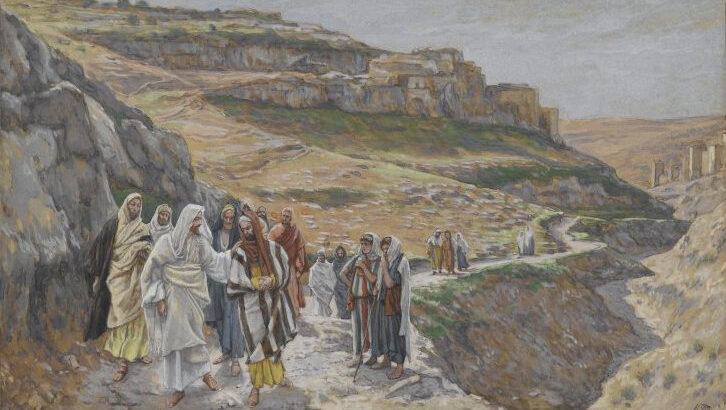Thomas O’Loughlin
This week we continue the exploration we began in the first part of this essay, published in the last issue.
Disputes and churches
If it were not for the conflicts in the Aegean churches we might never have had the genuine letters of Paul. There were disputes about practices and unwillingness to welcome one another as equals (I Cor.) but also about what was to be believed and expected (I Thess).
We know of arguments between Jewish followers of Jesus and gentile followers, about both circumcision and sharing resources. It was the abuses by ‘apostles and prophets’ of hospitality and support that generated the first Church regulations within, and they coined the term ‘christmonger’ for ministers greedy for money: there were ‘clergy on the make’ within a few decades of the crucifixion and several centuries before ‘clergy’ emerged!
Far from holding all in common, the wealthy kept their slaves, and did not like practices that challenged the social status quo.
The first followers were as challenged as we are by the Word, but they tried. Far from being plaster-cast saints, it was their willingness to keep at it in a culture which did not understand them and perceived them as fools and odd-bods that was their claim to being ‘among the saints’ (Eph. 5:3).
Looking towards the fulfilment
Graeco-Roman civilisation looked back to ‘a golden age’ since when things had been going downhill. Back then was ‘the age of the heroes’ and it was described with nostalgia. The Jews looked to the future: the coming of the Son of Man. The heavenly banquet when people will be gathered from north, south, east and west is the destination towards which we journey.
This has a direct implication for our thinking about the Church. We do not imagine that there was a happy time back then which we seek to re-create, but we, confident in God’s help, ask what should we become – if we are to bear witness to what we have seen in the life and teaching of the Word made flesh.
We are not engaged in a restoration project, the vision offered to us in the Gospel is not yet. We look forward as the pilgrim Church to hearing:
“Come, you that are blessed by my Father, inherit the kingdom prepared for you from the foundation of the world; for I was hungry and you gave me food, I was thirsty and you gave me something to drink, I was a stranger and you welcomed me, I was naked and you gave me clothing, I was sick and you took care of me, I was in prison and you visited me” (Mt 25:34-6).
False expectations
Luke’s device of imagining a perfect past as a blueprint – a technique he borrowed from Greek history writing – is powerful rhetorically because it engages the human propensity for a nostalgic: ‘we shall not see their like!’ But in making the first followers a group on a higher plane than us, we are disempowered.
Our sense is that it was easy for them: they belonged to the ‘age of the saints,’ ‘the springtime’ – but we are lesser beings! Inherent in this is a lack of faith that God loves each of us and that our moment is as beloved of the Creator who holds it in being, and as challenging to us as those called to witness as in the first days. The times have changed, the call to follow and witness – and all the difficulties – are the same. Those early Aegean churches and our churches today are one in hearing: ‘Blessed are those who have not seen and yet have come to believe’ (Jn 20:29).
Members/disciples
Another element distinguishes the pilgrim people walking forward from the societas perfecta presenting itself triumphantly to the world: discipleship. Until the 1930s most mainstream churches were united in thinking of belonging as identification and acceptance of specific beliefs.
The matter of identification was seen in churches’ desires to be recognised within legal frameworks: ideally, establishment, but at least giving bishops a say on education or ‘social policy.’ It was seen as significant if a country could be described as ‘a Catholic country’ which meant more than a majority of Catholics in the population.
Likewise, individual belonging was presented as assent to certain propositions. The churches held out ’truths to be accepted’ (the credenda) and you were a member of a particular church, if you accepted them. They were a list of boxes to be ticked. Then came movements like Nazism. Identification and assent were no longer enough – as was recognised by theologians like Dietrich Bonhoeffer (1906-1945). One had to become a disciple.
The disciple – more an ‘apprentice’ than a ‘student’ – knows that one does not just talk the talk, but walk the walk. That is the walk of the pilgrim. Discipleship costs.
Or as our formal memory (Mk 10:38) presents the desire of disciples looking towards their destination: “You do not know what you ask. Are you able to drink the cup that I drink, or be baptised with the Baptism that I am baptised with?”


 Jesus conversing with his disciples, 19th Century painting by J. J. Tissot
Jesus conversing with his disciples, 19th Century painting by J. J. Tissot 